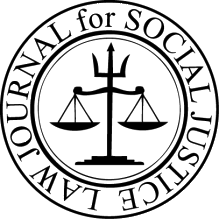By Isaac Behnke. The United States is currently in the midst of the longest period of time in which the federal minimum wage has remained stagnant—and American workers are suffering as a result. Low U.S. employment might indicate high wages and workers who can afford what they need, but the opposite is actually true. Between high costs of living and stagnant wages for many Americans, immediate action is needed to update the federal minimum wage to the true cost of American living.
Imagining liberation: Abolition in the 21st century
By Amy Lundy. The United States incarcerates more people than any other nation in the world, but it doesn’t prevent crime. In fact, modern systems of criminal law—including police departments and prisons—do little to solve or prevent crime. And while Americans perceive crime to be on the rise, the opposite is actually true. Data shows that the best solution to crime in the U.S. is to provide the health care, housing, and education that people need to live a life without crime.
Rental tax ban: Arizona’s answer to the increasing cost of housing, or a move to consolidate wealth for a more affluent class?
By Ben Alto. The Arizona Senate recently passed SB 1131, which would ban cities and towns from taxing rental tenants. The bill is purported to be a solution for the state’s housing crisis, but it may just leave Arizona cities and towns with a multi-million-dollar budget shortfall. Further, out-of-state investment in Arizona properties means less housing is available for in-state residents.
Better safe than sorry: Legislation addresses an ongoing problem with patient transport by Arizona EMS providers
By Rachel Carroll. Hospitals and emergency medical services (EMS) providers in Arizona have been criticized for participating in “patient dumping,” in which medical providers essentially abandon patients due to a reported lack of bed space. This controversial practice has a disproportionate effect on people from marginalized communities, including low-income people and those experiencing homelessness. One Arizona state representative took the lead on a recent bill to prohibit the practice, but more will need to be done to protect people’s health and safety.
Crisis continues: Local governments struggle to make housing available for people in need
By Isaac Behnke. The housing crisis in Arizona has a disproportionately large impact on those families and communities already struggling financially. Across Arizona, nearly 180,000 renter households are considered extremely low-income. Those renters face a shortage of more than 135,000 available, affordable rental homes. The result is homelessness and severe housing instability for most families in the lowest income brackets.
